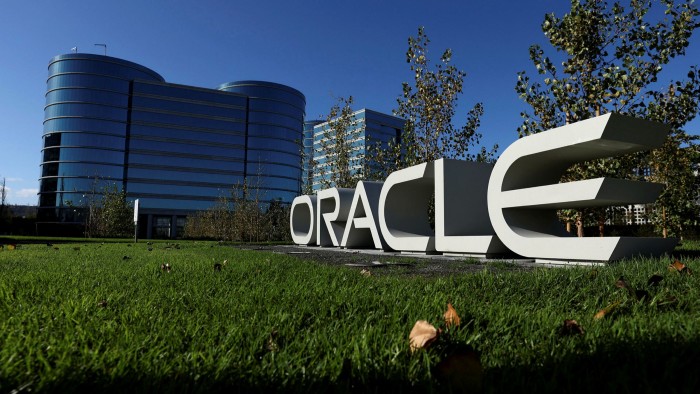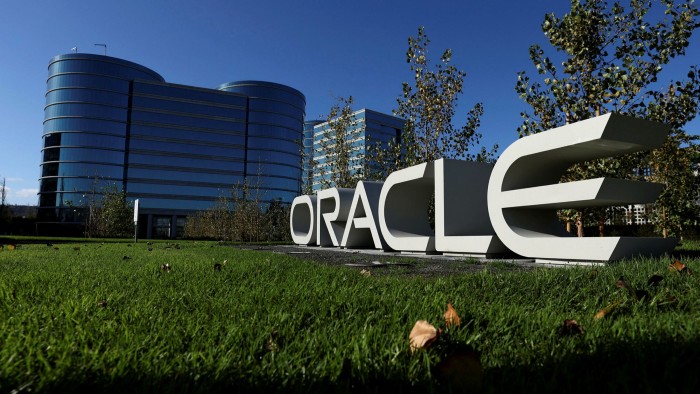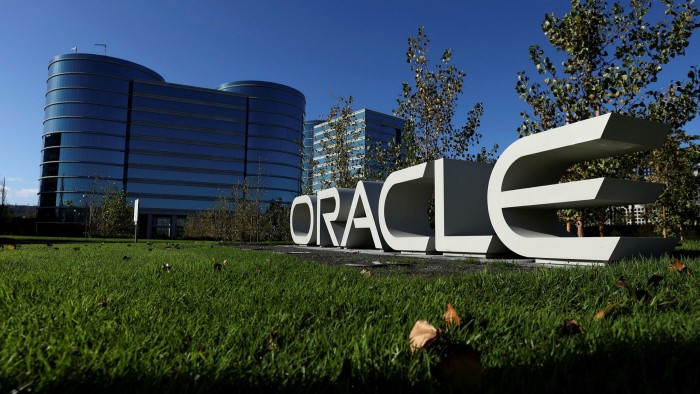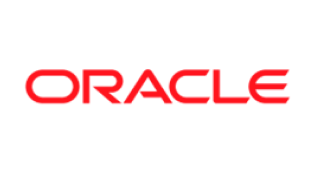Oracle Surges 13% After Raising 2026 Revenue Forecast on Strong AI Cloud Demand

Shares of Oracle (NYSE:ORCL) jumped more than 13% intra-day today after the company raised its full-year revenue growth outlook and underscored strong demand for its AI-driven cloud offerings. CEO Safra Catz announced during the post-earnings call that Oracle now expects total revenue for fiscal 2026 to reach at least $67 billion, representing a 16.7% increase year-over-year, up from its prior forecast of 15% growth.
For the fiscal fourth quarter, Oracle reported adjusted earnings per share of $1.70 on revenue of $15.9 billion, surpassing analyst expectations of $1.64 in EPS and $15.58 billion in revenue. The standout performance came from Oracle Cloud Infrastructure, which saw revenue surge 62% year-over-year. Additionally, the company's remaining performance obligations—a forward-looking measure of contracted revenue—rose 41% to $138 billion, signaling continued momentum in demand for its services.
| Symbol | Price | %chg |
|---|---|---|
| 4338.HK | 1600 | 0 |
| CYBR.JK | 1340 | 1.12 |
| 377300.KS | 50700 | -0.99 |
| MSFT.NE | 35.54 | 0.37 |

Oracle Corporation Partners with Duality Technologies to Enhance Government and Defense Sectors with AI Solutions
- Oracle Corporation (NYSE:ORCL) has partnered with Duality Technologies to offer a privacy-first AI solution for government and defense sectors, deployable on Oracle Cloud Infrastructure (OCI).
- The collaboration enables secure data collaborations for mission-critical operations, leveraging OCI's robust security and interoperability features.
- Despite a recent decrease in stock price, BMO Capital maintains an "Outperform" grade for Oracle, raising its price target from $345 to $355.
Oracle Corporation (NYSE:ORCL) is a global leader in database software and technology, cloud-engineered systems, and enterprise software products. The company has recently partnered with Duality Technologies to offer a privacy-first AI solution for government and defense sectors. This collaboration introduces Duality's secure data collaboration platform to the Oracle Cloud Marketplace, making it deployable on Oracle Cloud Infrastructure (OCI).
The integration allows government, defense, and intelligence agencies to conduct secure data collaborations for mission-critical operations. Leveraging OCI's robust security and interoperability features, the platform supports specialized cloud environments, including Oracle Cloud Isolated Regions. This ensures that agencies can issue encrypted queries and receive confidential results swiftly, maintaining high security standards and regulatory compliance.
Duality's platform, powered by OCI's high-bandwidth and low-latency architecture, is designed for compute-intensive analytics and AI workloads. This adaptability is crucial for evolving mission needs. Dr. Alon Kaufman, CEO of Duality Technologies, emphasizes the balance between innovation and confidentiality, allowing agencies to extract valuable intelligence while maintaining stringent security and privacy standards.
Rand Waldron, vice president at Oracle, highlights the company's commitment to national security and defense organizations. The partnership with Duality provides a comprehensive ecosystem of solutions, enabling customers to securely collaborate and utilize advanced AI tools. This transforms sensitive data into strategic advantages, reinforcing Oracle's position in the market.
Oracle's stock, trading at $302.34, has seen a decrease of approximately 1.84%, with a drop of $5.68. Despite this, BMO Capital maintains an "Outperform" grade for Oracle, raising its price target from $345 to $355. Oracle's market capitalization is approximately $848.14 billion, with a trading volume of 11.18 million shares, as highlighted by BMO Capital.

Oracle Commodity Holding Corp. Announces Upsized Private Placement Financing
- Oracle Commodity Holding Corp. has increased its non-brokered private placement from 7.5 million units to 8 million units due to high demand, raising potential gross proceeds to $280,000.
- Company insiders will subscribe for up to 1.75 million units, contributing up to $61,250.
- The proceeds will be used for general corporate purposes and to acquire a 2% royalty from U.S. Fluorspar LLC, aiming to strengthen the company's position in the mining royalty sector.
Oracle Commodity Holding Corp. is a mining royalty company with interests in precious metal and critical mineral projects. Recently, the company announced an increase in its non-brokered private placement financing due to high demand. The offering has been upsized from 7.5 million units to 8 million units, raising potential gross proceeds to $280,000. Each unit includes one common share and one transferable common share purchase warrant, allowing the holder to acquire an additional share at $0.06 for three years.
Company insiders are set to subscribe for up to 1.75 million units, contributing up to $61,250. This transaction is considered a related party transaction under Multilateral Instrument 61-101, but the company is exempt from formal valuation and minority shareholder approval requirements. The offering is expected to close soon, pending necessary regulatory approvals, including from the TSX Venture Exchange.
The proceeds from this financing will be used for general corporate purposes and to pay for the acquisition of a 2% royalty from U.S. Fluorspar LLC over certain fluorspar projects. CEO Jason Powell is leading the company through this expansion, aiming to strengthen Oracle Commodity Holding Corp.'s position in the mining royalty sector.
Oracle Corporation, trading under the symbol NYSE:ORCL, is a separate entity from Oracle Commodity Holding Corp. Evercore ISI recently maintained its "Outperform" grade for Oracle, with the stock priced at $296.96. Evercore ISI also raised Oracle's price target from $340 to $350, indicating confidence in the company's future performance.
Oracle has demonstrated an asset turnover ratio of approximately 0.33 over the trailing twelve months, showing its efficiency in using assets to generate revenue. The operating profit margin stands at about 30.44%, reflecting Oracle's ability to convert sales into operating profit effectively. In the most recent quarter, Oracle reported a revenue of $14.93 billion, with a gross profit of $10.04 billion after accounting for the cost of revenue.

Oracle Commodity Holding Corp. Expands Financing Amid High Demand
Oracle Commodity Holding Corp., a mining royalty company specializing in precious metals and critical minerals, has announced an increase in its non-brokered private placement financing due to high demand. The offering, initially set at 7 million units priced at $0.035 per unit, has been upsized to 7.5 million units, raising potential gross proceeds from $245,000 to $262,500. Each unit includes one common share and one transferable common share purchase warrant, allowing the holder to acquire an additional share at an exercise price of $0.06 for three years from issuance.
Company insiders are expected to subscribe for up to 1.75 million units, contributing up to $61,250 in gross proceeds. This transaction is considered a related party transaction under Multilateral Instrument 61-101. However, the company is exempt from formal valuation and minority shareholder approval requirements, as insiders' participation will not exceed 25% of the company's market capitalization. The offering is subject to regulatory approvals, including from the TSX Venture Exchange, and the units will be issued privately under exemptions from prospectus requirements. The proceeds from this offering will be used for general corporate purposes and to pay for the acquisition of a 2% royalty from U.S. Fluorspar LLC over certain fluorspar projects. This strategic financial move is led by CEO Anthony Garson, who is steering the company through this growth phase.
The company's focus on expanding its royalty interests aligns with its long-term strategy to enhance shareholder value. In contrast, Oracle Corporation (NYSE:ORCL) is a major player in the technology sector, with a price-to-earnings (P/E) ratio of approximately 64.39. The company's price-to-sales ratio is about 13.47, and its enterprise value to sales ratio is around 15.08.
Oracle's enterprise value to operating cash flow ratio is approximately 41.34, with an earnings yield of about 1.55%. The company has a debt-to-equity ratio of roughly 4.36, indicating a significant level of debt compared to its equity. Additionally, Oracle's current ratio is approximately 0.62, suggesting that its current assets are not sufficient to cover its current liabilities.
On September 26, 2025, UBS set a price target of $364 for Oracle, as highlighted by UBS. At the time of this announcement, Oracle's stock price was $291.41, indicating a potential increase of approximately 24.91% from the current price. This reflects the market's positive outlook on Oracle's future performance, despite its high debt levels and low current ratio.

Oracle Corporation's (NYSE:ORCL) New Price Target and AI Sector Wins Drive Optimism
- Oracle Corporation (NYSE:ORCL) receives a new price target from Guggenheim, suggesting an 11.18% increase.
- The company's significant contract wins in the AI sector have led to a 37% surge in shares.
- Oracle's strategic partnerships and a 77% increase in cloud infrastructure sales forecast highlight its strong market positioning.
Oracle Corporation (NYSE:ORCL) is a leading player in the technology sector, known for its database software and cloud infrastructure services. Recently, John DiFucci from Guggenheim set a new price target for Oracle at $375, up from its current price of $337.28. This target suggests an 11.18% increase, reflecting optimism about Oracle's future performance.
Oracle's shares have surged by over 37% following significant contract wins in the AI sector. The company secured billion-dollar deals, underscoring its growing influence in the AI market. This development has boosted investor confidence, as highlighted by the stock's 30% surge in premarket trading after announcing an improved sales outlook for its cloud infrastructure.
The company's strategic positioning is further strengthened by partnerships with tech giants like Amazon, Alphabet, and Microsoft. Oracle anticipates a 77% increase in cloud infrastructure sales, reaching $18 billion this fiscal year. This surpasses its previous forecast of 70% growth, driven by the increasing demand for AI solutions.
Richard Clode from Janus Henderson Investors describes Oracle's performance as a "drop the mic" moment. The company has secured $300 billion in contracts, reflecting unprecedented demand for AI. This growth is supported by sovereign drivers enhancing capital expenditures, expanding Oracle's market presence.
Oracle's stock, currently priced at $337.06, has seen a significant rise of 39.56% over the past year. The stock has fluctuated between $239.94 and $339.69 today, with a market capitalization of approximately $946.74 billion. The trading volume stands at 42.4 million shares, indicating strong investor interest.

Oracle Corporation's (NYSE:ORCL) Growth in the Cloud Computing Sector
- Guggenheim maintains a "Buy" rating for Oracle, raising its price target from $250 to $375, indicating strong confidence in Oracle's growth, especially in cloud services.
- Oracle's stock has seen a significant increase, with a price jump of $3.03 or 1.27%, showcasing its strong performance in the tech market compared to competitors like Apple.
- The company's market capitalization stands at approximately $678.36 billion, reflecting its substantial presence and volatility in the tech industry.
Oracle Corporation (NYSE:ORCL) is a leading technology company known for its software products and services, particularly in database management. The company has been making significant strides in the cloud computing sector, which is a key growth area. Oracle competes with other tech giants like Microsoft and Amazon in the cloud space.
On September 10, 2025, Guggenheim maintained its "Buy" rating for Oracle, with the stock priced at $241.51. Guggenheim also raised Oracle's price target from $250 to $375, as highlighted by TheFly. This reflects confidence in Oracle's growth potential, particularly in its cloud services, which have been a major driver of its stock performance.
Oracle's stock is experiencing significant growth, driven by its impressive cloud outlook that has captivated investors. The stock price has increased by $3.03 or 1.27% from the previous trading session, reaching a high of $243.44 today. This growth contrasts with Apple's stagnating stock performance, highlighting the factors determining winners in the tech market.
Oracle's market capitalization is approximately $678.36 billion, indicating its substantial presence in the tech industry. The stock has traded between a low of $234.56 and a high of $243.44 today, with a trading volume of 22.84 million shares on the NYSE. Over the past year, ORCL has reached a high of $260.87 and a low of $118.86, showcasing its volatility and growth potential.
The financial landscape is also influenced by broader market dynamics, such as the temporary block on former President Trump from dismissing Federal Reserve's Cook and the emerging turf war concerning Fannie Mae and Freddie Mac. These events, while not directly related to Oracle, shape the overall market environment in which the company operates.

Oracle Corporation's Upcoming Earnings Report: A Financial Overview
- Oracle Corporation (NYSE:ORCL) is anticipated to release its quarterly earnings with an estimated EPS of $1.47 and projected revenue of $15.03 billion.
- The company's performance in the cloud services sector is a significant contributor to its financial outcomes.
- Financial metrics such as the P/E ratio of 50.37, debt-to-equity ratio of 5.09, and current ratio of 0.75 offer insights into Oracle's market valuation and financial health.
Oracle Corporation, listed on the NYSE under the symbol ORCL, is a leading provider of integrated cloud applications and secure infrastructure. The company is set to release its quarterly earnings on September 9, 2025, with analysts estimating an earnings per share (EPS) of $1.47 and projected revenue of $15.03 billion. Oracle's performance in the cloud services sector is a key driver of its financial results.
Oracle plans to announce its first-quarter fiscal year 2026 earnings results on September 9, 2025, after the market closes. The company will host a conference call and live webcast at 4:00 p.m. Central Time to discuss the financial results. This event will be accessible on the Oracle Investor Relations website, providing insights into the company's performance and future outlook.
Analysts expect Oracle to report a year-over-year increase in earnings, driven by higher revenues for the quarter ending August 2025. The consensus estimate suggests Oracle will post quarterly earnings of $1.47 per share. The stock's movement will largely depend on whether the actual results meet or exceed these expectations. A positive earnings surprise could lead to a rise in Oracle's stock price, while a miss might result in a decline.
Oracle's financial metrics provide insight into its market valuation. The company has a price-to-earnings (P/E) ratio of approximately 50.37, indicating how much investors are willing to pay for each dollar of earnings. Its price-to-sales ratio is about 10.93, reflecting the market's valuation of its revenue. The enterprise value to sales ratio is around 12.56, showing the company's total valuation in relation to its sales.
Oracle's debt-to-equity ratio is notably high at approximately 5.09, indicating a significant level of debt compared to equity. This could be a concern for investors, as it suggests a reliance on debt financing. Additionally, Oracle's current ratio is around 0.75, suggesting potential liquidity challenges in covering short-term liabilities with its current assets. These financial metrics will be important considerations for investors as they assess Oracle's financial health and future prospects.

BMO Lifts Oracle Price Target to $245, Keeps Outperform Rating Unchanged
BMO Capital raised its price target on Oracle (NYSE:ORCL) to $245 from $235 while maintaining an Outperform rating, as the firm expects the company’s significant capital expenditure requirements to impact free cash flow and potentially necessitate new capital raises in fiscal 2026 or 2027.
The analyst noted that Oracle’s ongoing dividend commitments and anticipated share buybacks, combined with rising capex needs—likely tied to cloud infrastructure and AI investments—could pressure cash flows. While BMO sees any capital raise as manageable, it cautioned that dilution from new financing could weigh modestly on EPS.
Despite this, the firm made only slight adjustments to its estimates and reiterated its bullish stance, arguing that Oracle’s growth prospects in cloud and AI continue to support a favorable risk/reward profile. The raised target reflects confidence in Oracle’s strategy and the durability of its business model even as it navigates near-term financial balancing.







